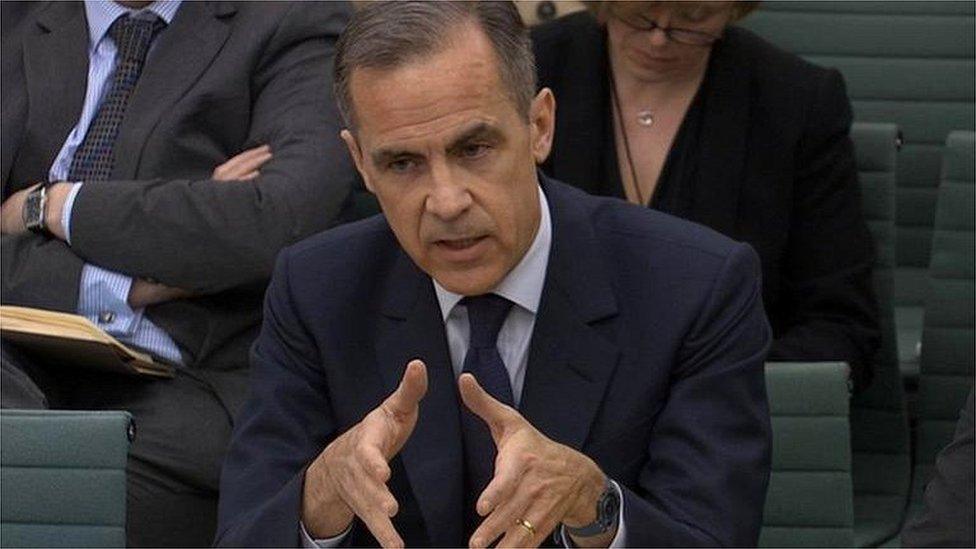Carney walks the referendum tightrope
- Published
- comments

Like a man walking a tightrope across shark infested waters, Mark Carney knew that one mis-step could drop the independent governor of the Bank of England into dangerous waters.
Yes, sometimes he wobbled - particularly when the issue of political pressure came up - but he did manage to navigate his way to the other side of the pond without losing a limb.
On short term risk, the Bank is clear - the economic uncertainty created if Britain were to leave the European Union (EU) could be significant.
Indeed, such a decision could be the largest "domestic risk" to the UK economy. Though Mr Carney was careful to point out that global risks, such as the economic slowdown in China, could well be more significant.
Of course, Mr Carney was careful to tie up every point he made with the carefully nuanced use of "coulds" and "maybes" (Mr Carney rarely uses the word "will").
So, what are the dangers of "out", as Mr Carney sees it?
He said if Britain did leave the EU, the value of sterling could fall, foreign direct investment could decline, that there could be upward pressure on inflation and that there was likely to be "some relocation" of financial services sector jobs to other financial centres in the EU - although the level would depend on the type of trade agreements Britain was able to sign with the EU.
He also said that David Cameron's deal with the 27 other member states on protections for the City, deepening the single market and the recognition that the euro was not the only currency of the EU was likely to improve competitiveness.
But - and it is a significant but, carefully honed by a governor who says that it is not his job to make the case for either side in this hotly political debate - Mr Carney said that over the longer term there can be no "conclusive answer" to the question whether it would be good or bad for the economy if the UK left the EU.
He also made it clear that the Bank had a number of monetary tools (such as the provision of liquidity for banks) which could be used to calm markets in the event of an exit.
And that the biggest risk of staying in the EU was "associated with the unfinished business of European monetary union".
So, staying in is not danger free.
As he considered the shark infested waters he would face this morning, Mr Carney knew two things.
First, that the pro-remain camp would grab all his negative comments about Brexit and trumpet them as a victory for them.
And they will.
Second, that he was likely to be attacked by the pro-leave campaign for being deliberately partisan in his approach to the value or otherwise of the EU to the British economy.
And he was.
It was the only moment Mr Carney appeared to bridle, responding to Jacob Rees-Moggs' "beneath the Bank's dignity" attack with a testy "I cannot let that stand".
That's about as close as a central bank governor comes to blowing his top.
Both the Remain and Leave camps can take some succour from the governor's appearance.
For him, the key message did get through. The short-term risks of Brexit are apparent and the Bank is ready to deal with them.